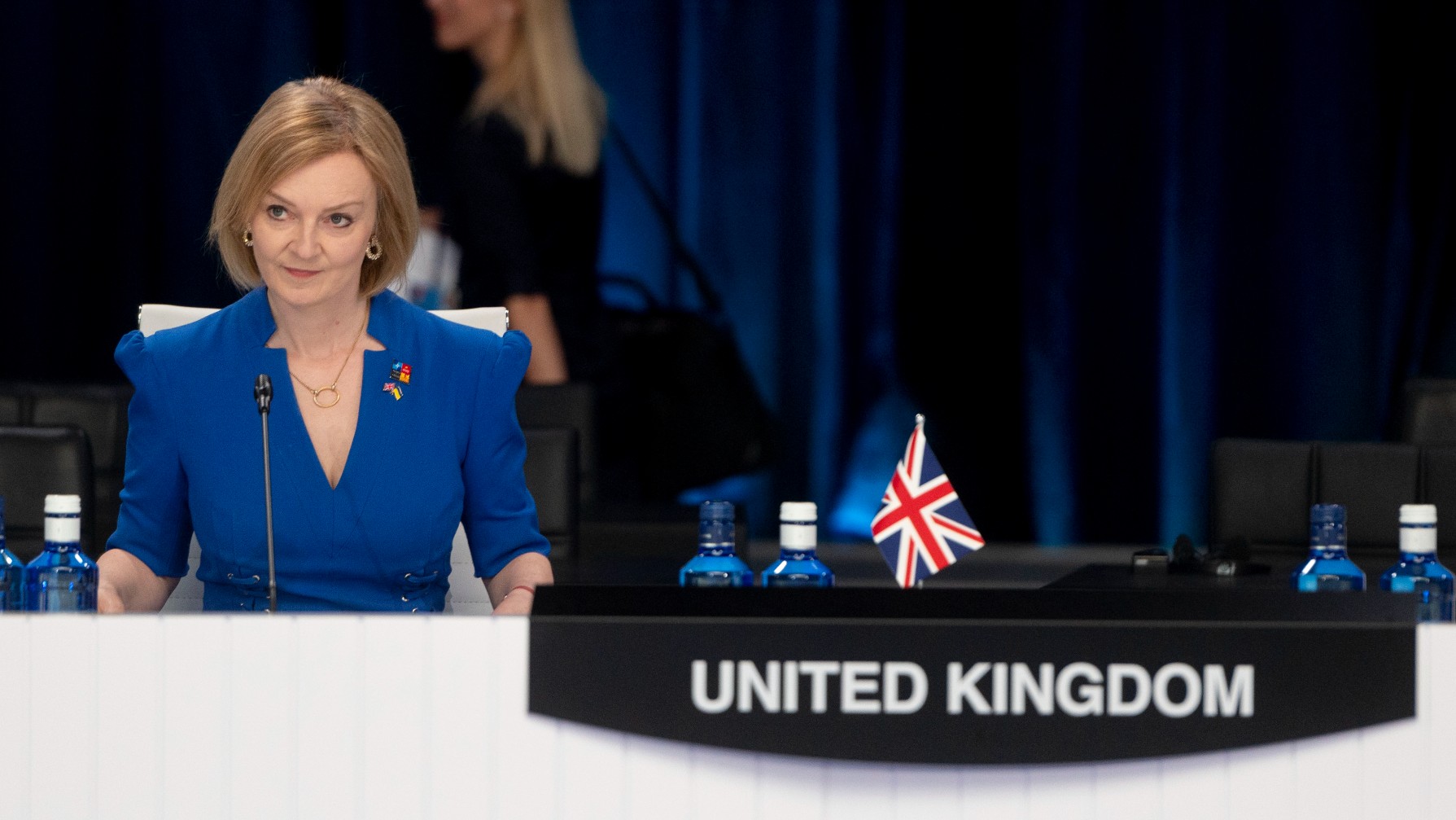Truss to match Johnson’s Ukraine spending
New PM takes ‘hawkish commitment’ to UN and calls for end to Putin’s economic blackmail of Europe

A free daily email with the biggest news stories of the day – and the best features from TheWeek.com
You are now subscribed
Your newsletter sign-up was successful
Liz Truss will commit to spending billions more supporting and arming Ukraine next year as politics finally returns to normal following the Queen’s funeral.
Addressing the UN General Assembly on Wednesday in her first trip abroad as prime minister, Truss will promise that next year Britain will match or exceed the £2.3bn it is spending on military aid this year. The UK is already the second largest military donor to Ukraine behind only the US.
Arriving in New York with what the Financial Times described as “a hawkish commitment to stand by Ukraine for the long haul”, The Times said: “The focus of her speech tomorrow, as well as many of her meetings with other world leaders, will be the war in Ukraine.”
The Week
Escape your echo chamber. Get the facts behind the news, plus analysis from multiple perspectives.

Sign up for The Week's Free Newsletters
From our morning news briefing to a weekly Good News Newsletter, get the best of The Week delivered directly to your inbox.
From our morning news briefing to a weekly Good News Newsletter, get the best of The Week delivered directly to your inbox.
Supporting the embattled country was “a key policy plank” of the Boris Johnson government, said the BBC, and Truss has been clear she intends to continue this, despite the dire impact the war is having on energy prices and the cost-of-living crisis.
The Telegraph reported that she will warn world leaders in New York that now is not the time to “take our foot off the gas” as Ukrainian forces make gains, but rather to put an end to Vladimir Putin’s economic blackmailing of Europe by removing all energy dependence on Russia.
Having suspended political activity and government business during the period of national mourning following the Queen’s death, Truss will look to relaunch her premiership on the world stage, meeting leaders including President Emmanuel Macron of France and US President Joe Biden.
“It will mean the returning political conversation will have a diplomatic air – in its opening few hours at least – rather than an immediately intense domestic scrappiness,” said BBC political editor Chris Mason. “But that will be back before you know it.”
A free daily email with the biggest news stories of the day – and the best features from TheWeek.com
-
 Switzerland could vote to cap its population
Switzerland could vote to cap its populationUnder the Radar Swiss People’s Party proposes referendum on radical anti-immigration measure to limit residents to 10 million
-
 Political cartoons for February 15
Political cartoons for February 15Cartoons Sunday's political cartoons include political ventriloquism, Europe in the middle, and more
-
 The broken water companies failing England and Wales
The broken water companies failing England and WalesExplainer With rising bills, deteriorating river health and a lack of investment, regulators face an uphill battle to stabilise the industry
-
 New START: the final US-Russia nuclear treaty about to expire
New START: the final US-Russia nuclear treaty about to expireThe Explainer The last agreement between Washington and Moscow expires within weeks
-
 What would a UK deployment to Ukraine look like?
What would a UK deployment to Ukraine look like?Today's Big Question Security agreement commits British and French forces in event of ceasefire
-
 Would Europe defend Greenland from US aggression?
Would Europe defend Greenland from US aggression?Today’s Big Question ‘Mildness’ of EU pushback against Trump provocation ‘illustrates the bind Europe finds itself in’
-
 Is conscription the answer to Europe’s security woes?
Is conscription the answer to Europe’s security woes?Today's Big Question How best to boost troop numbers to deal with Russian threat is ‘prompting fierce and soul-searching debates’
-
 Trump peace deal: an offer Zelenskyy can’t refuse?
Trump peace deal: an offer Zelenskyy can’t refuse?Today’s Big Question ‘Unpalatable’ US plan may strengthen embattled Ukrainian president at home
-
 Vladimir Putin’s ‘nuclear tsunami’ missile
Vladimir Putin’s ‘nuclear tsunami’ missileThe Explainer Russian president has boasted that there is no way to intercept the new weapon
-
 The Baltic ‘bog belt’ plan to protect Europe from Russia
The Baltic ‘bog belt’ plan to protect Europe from RussiaUnder the Radar Reviving lost wetland on Nato’s eastern flank would fuse ‘two European priorities that increasingly compete for attention and funding: defence and climate’
-
 How should Nato respond to Putin’s incursions?
How should Nato respond to Putin’s incursions?Today’s big question Russia has breached Nato airspace regularly this month, and nations are primed to respond